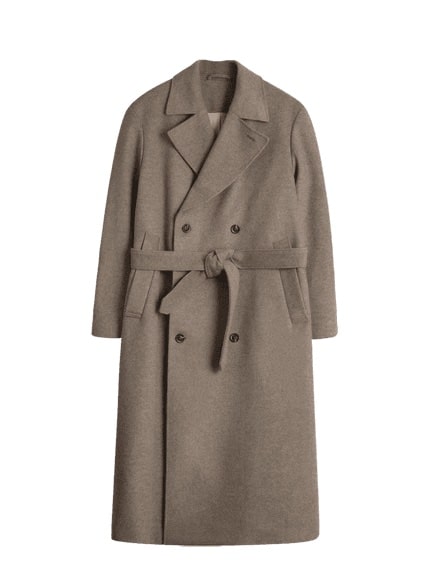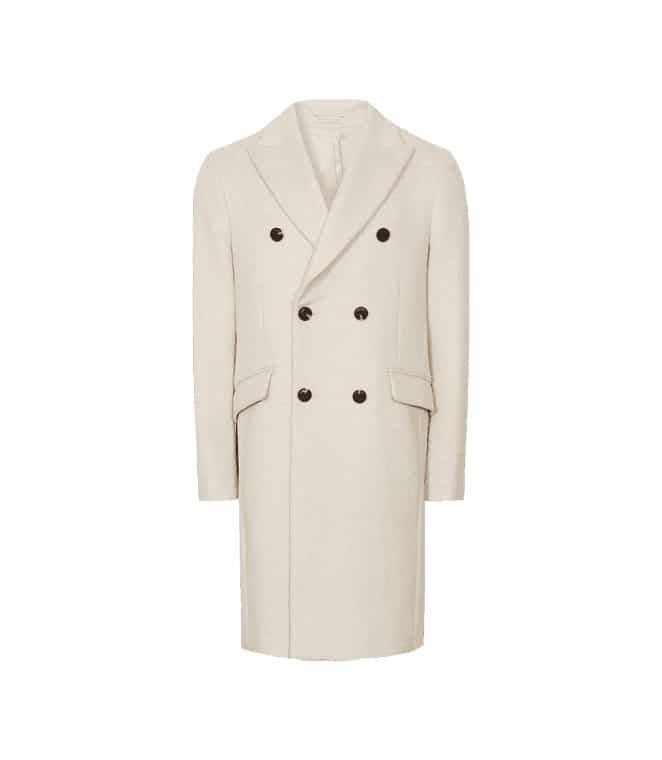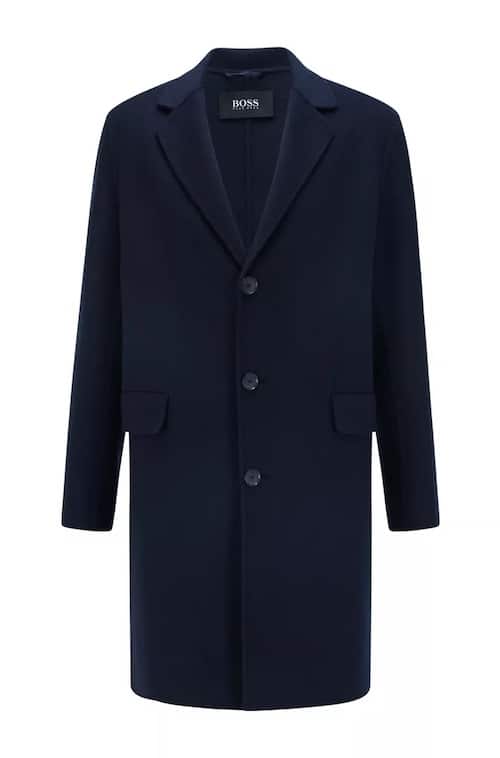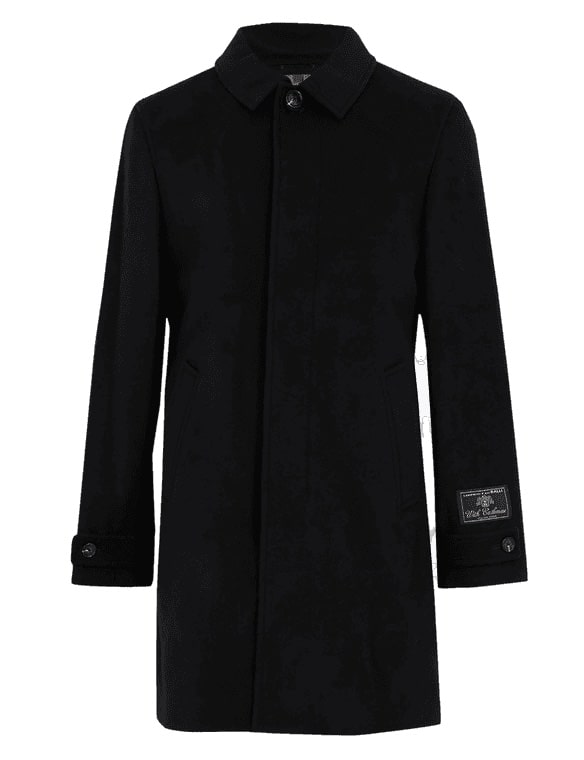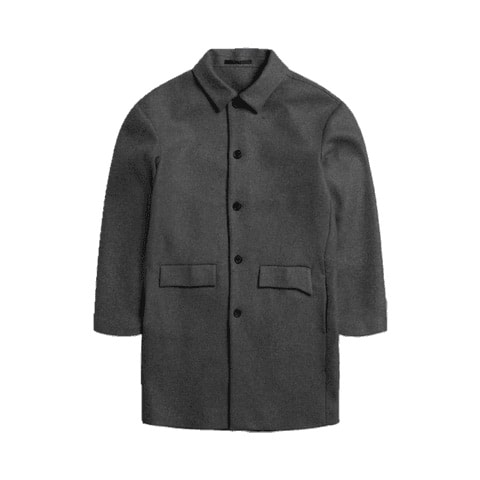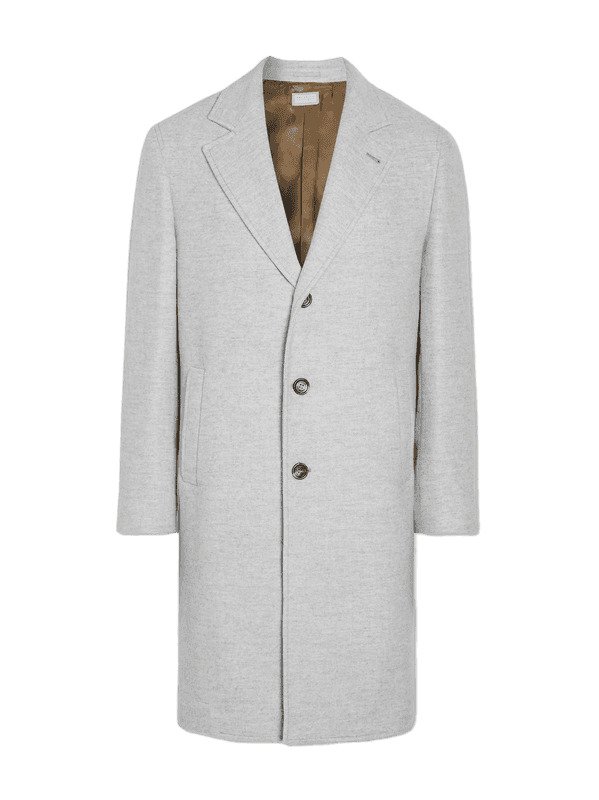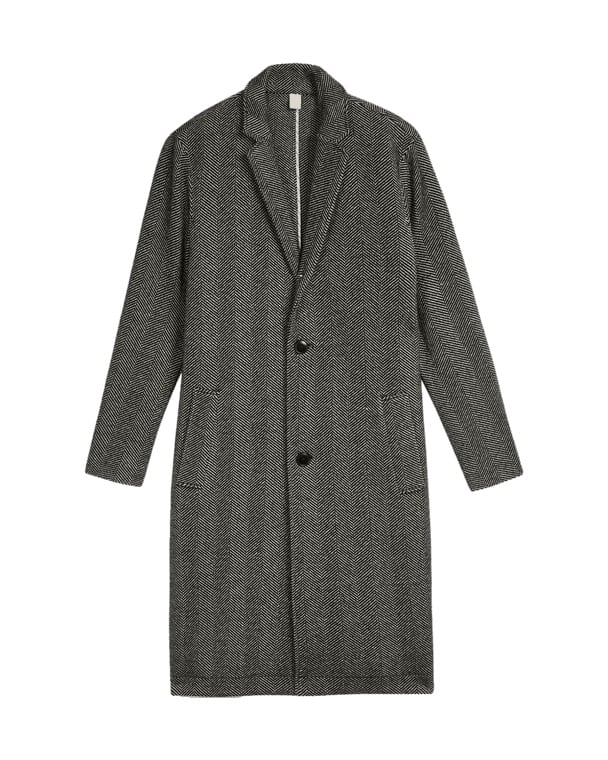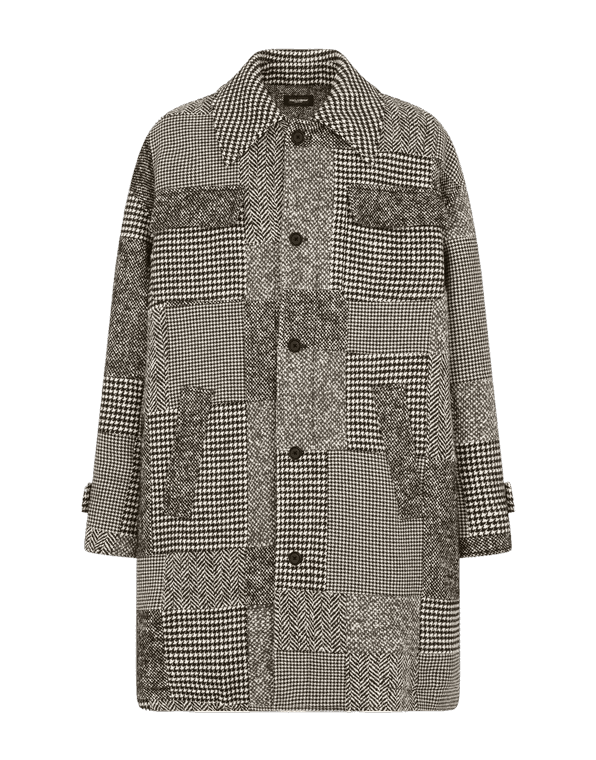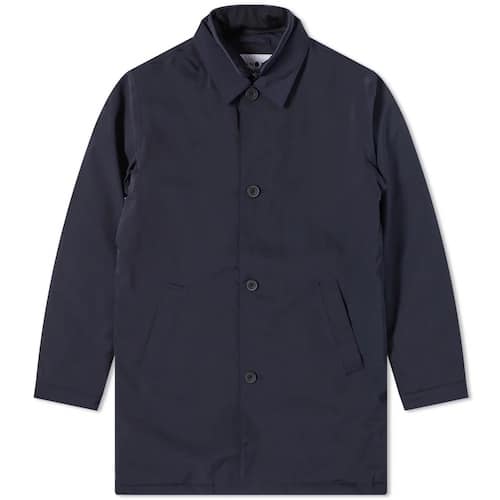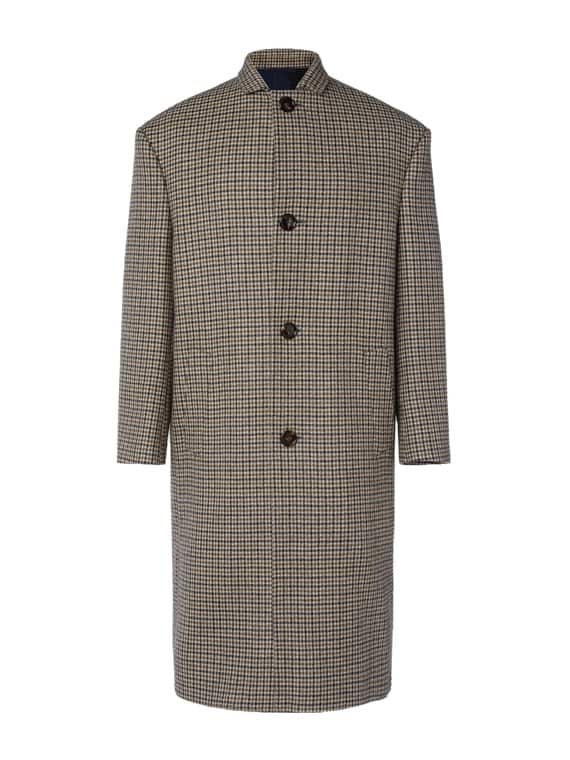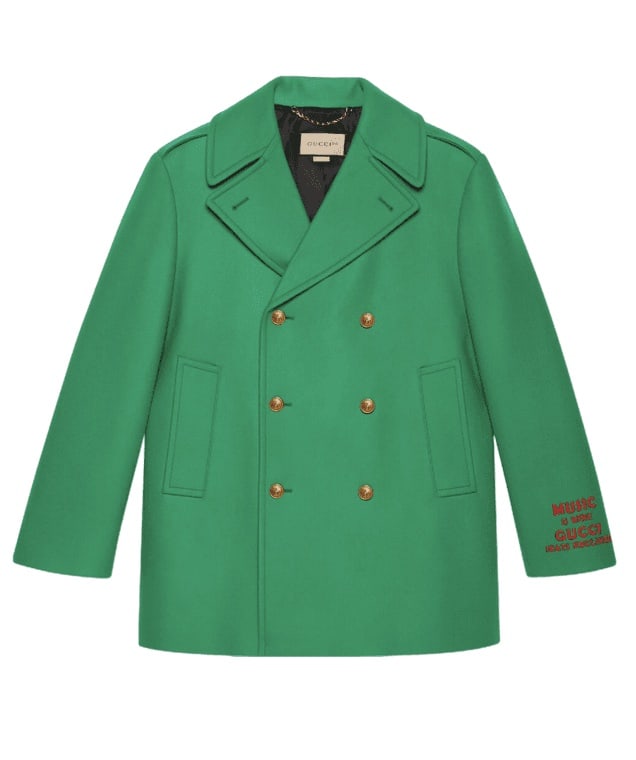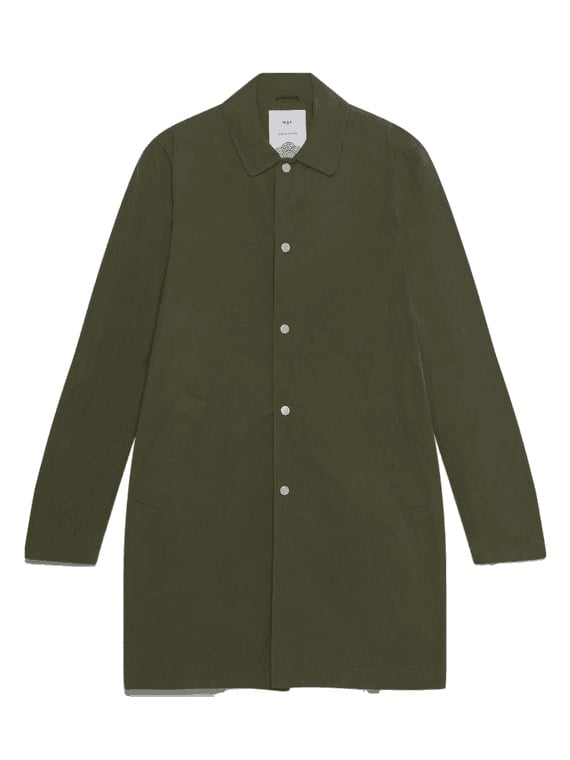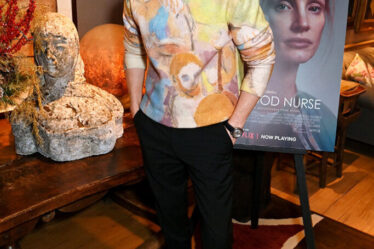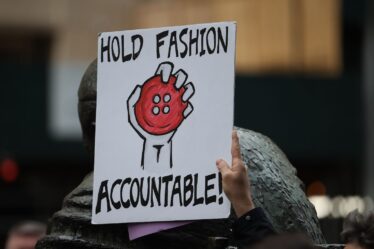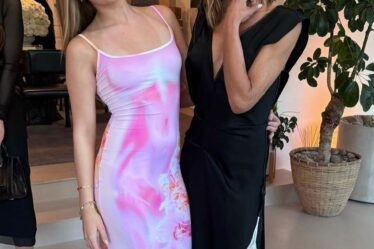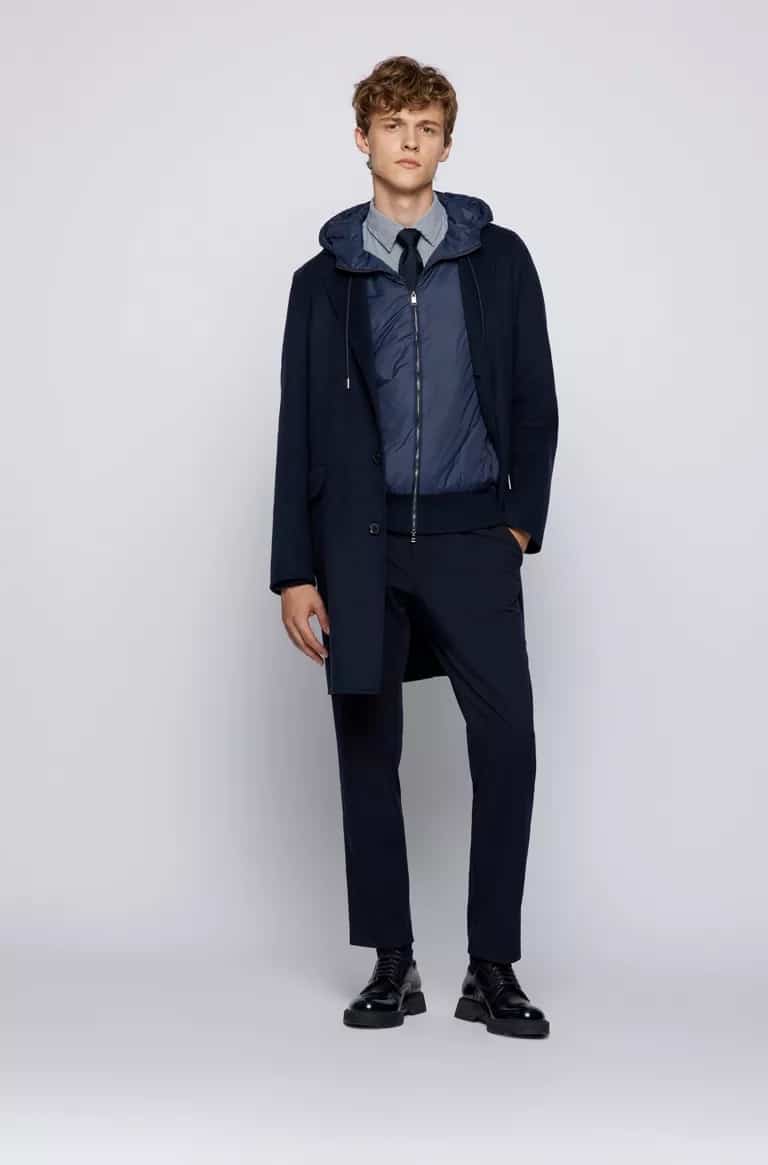
Images and Article from www.fashionbeans.com.
If you have good taste, as the saying goes, you can shop anywhere. But knowing what to buy when you get there, well that’s a different story altogether.
For all the smart-casual occasions that might come up during the winter season, it’s hard to beat a classic men’s overcoat. Insulating, versatile and an easy way to take any look up a notch, the outerwear style is a fundamental part of any well turned-out man’s wardrobe.
Wool might not be waterproof, but it is water-resistant, capable of holding 20 percent of its weight in water before feeling heavy or wet. It’s also one of the warmest fabrics around, made up of fine fibers that trap air that can be heated up by the body. And then there’s the overcoat’s simple, evergreen cut, which means you can take it to the Christmas party just as easily as you can throw it over a hoodie to wait in line for the latest Supreme drop.
In case you needed any more convincing, here we take you through everything you need to need to know about this most enduring of menswear pieces – from the best places to buy one to the key ways you can style it.
What Is An Overcoat?
As with many contemporary menswear staples, it’s difficult to pinpoint exactly when the overcoat first emerged. Several online accounts name 1772 as the year the overcoat was invented, while others claim the early 19th century was when they really came into their own.
Regardless, usage of the word itself dates back to the late 18th century, meaning overcoats were being worn before the Regency Period in Britain.
Crafted from a heavy fabric such as wool (Merino, melton etc.), the overcoat is a long-sleeved coat that can be either single- or double-breasted, and usually has a single vent at the back.
The topcoat, on the other hand, is a variant plenty of people often confuse with the overcoat and is made from a lighter fabric, extending to the knee at its very longest. To add to the confusion, there’s the greatcoat, which – for all intents and purposes – is just a way of referring to an overcoat that’s particularly bulky, heavy and hard-wearing.
What To Look For When Buying An Overcoat?
Fabric
If you’re looking to invest in an overcoat that you’ll wear for years to come, choose a style that is 100 per cent wool and that has a decent weight to it (around 4lbs for most men).
“Men’s Overcoats made entirely of wool will keep you warm and can weather the storm without falling to pieces,” says Chris Gove, founder of British menswear brand Percival.
Alternatively, you could try a cashmere version, but not only are these usually eye-wateringly expensive, they’re also likely to show wear at the cuffs and collar quicker than a 100 per cent wool design would. Try a wool-cashmere blend if you just can’t do without a little luxury.
Fit
Despite being the final thing you throw on before heading outside, how an overcoat hangs off your body shouldn’t be a last-minute thought.
“Fit is extremely important when deciding on a men’s overcoat,” says Alex McCart, head of menswear buying at Reiss. “If you’re to wear it over a suit, it is important to make sure that there is enough room in the shoulders and waist to fit your blazer underneath. As well as it being very uncomfortable, it can look like the coat is too small for you.
“If you’re looking for something more casual, then its best to try the size down for a sleeker look, and something with a softer shoulder.”
Colour
Forking out for a good quality men’s overcoat may set you back financially, but this is an investment you’re sure to receive a handsome return on. But only providing you wear it regularly, which means getting your colour choice right.
“Navy is going to look great with almost all of your wardrobe, however, don’t be afraid to try on a rich camel,” says McCart. “This will look equally as good with tailoring but also a great colour to dress down with denim.”
Like the shirts, trousers and ties in your rotation, block colours should be your starting point before moving on to more interesting patterns such as checks.
Style
While designers are constantly re-imagining the overcoat, adding elbow patches, appliqué details, contrast collars and raglan shoulders, there are two main styles to choose from: single-breasted and double-breasted.
Single-breasted versions are more minimal and clean, enabling them to be paired with everything from your nine-to-five suits to a jeans and Oxford shirt combination at the weekend. Double-breasted overcoats, on the other hand, have a formidable air of tradition about them and pair more easily with tailoring unless worn unbuttoned and dressed down.
“Some of my favourite overcoat styles this season have been single-breasted belted styles,” says Frazer Goater, a personal stylist at Harvey Nichols in London. “I think something with texture and a herringbone finish can help make a statement too.”
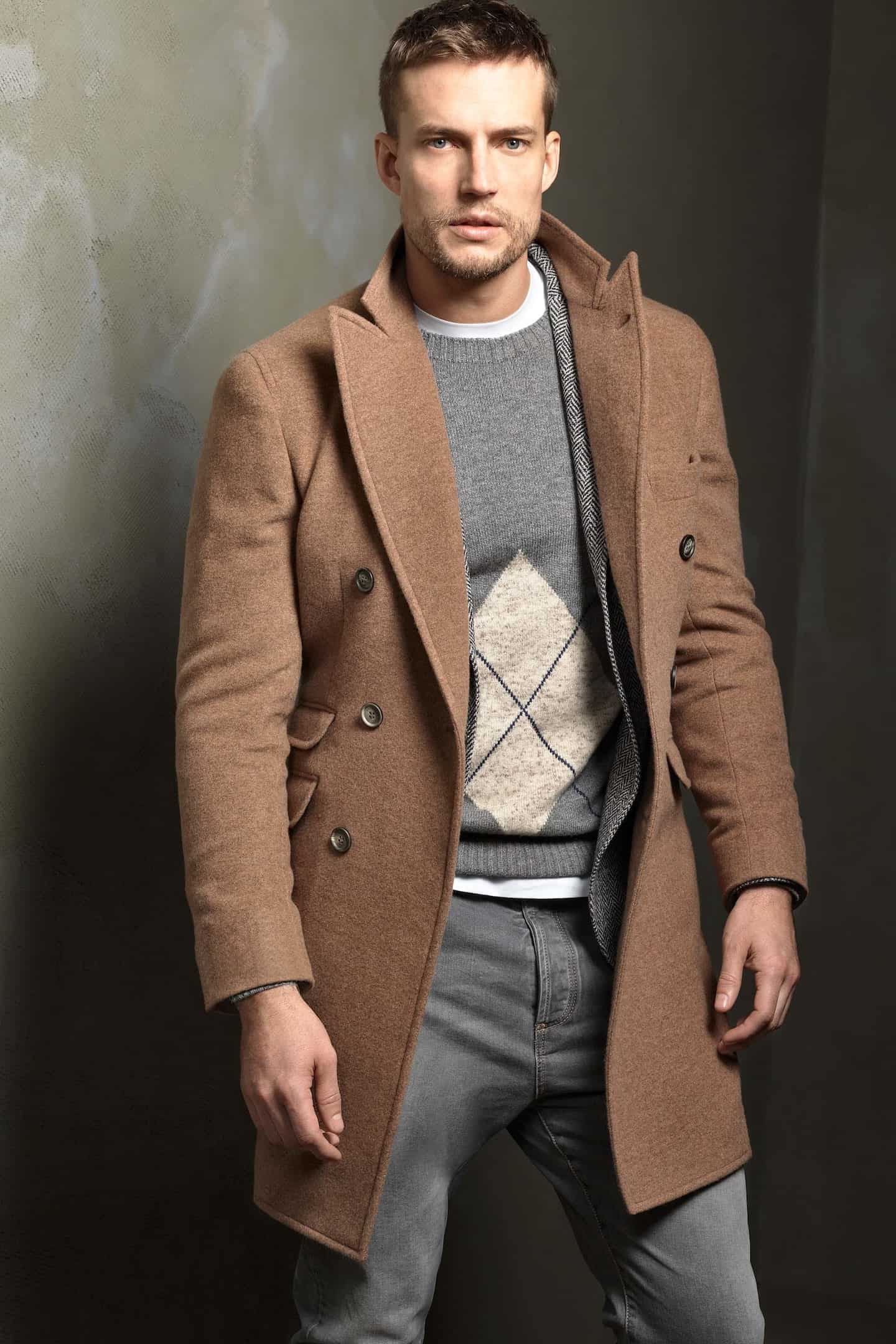
How To Wear An Overcoat
As you’ll likely have gathered by now, the overcoat is intended as an outer layer for wear during the colder months. Many people think it’s merely the final, winter-appropriate addition to a suit, but this essential has so much more potential.
For a casual look inspired by the skinheads, try a coat with a trim-fitting gingham shirt, rolled-up acid wash jeans, ribbed boot socks and a pair of chunky Dr Martens. For something that’s refined but not formal, wear it over a slim-fit blazer, jumper, white Oxford shirt and wool trousers, then finish with Derbies.
“I would also try an overcoat layered over a hoodie or denim jacket with chinos and trainers to nail that ’90s style,” says menswear stylist Sarah Gilfillan, who also recommends you pick your style of overcoat depending on your height.
“If you’re a shorter guy, don’t overwhelm yourself with fabric and go for a neat, single-breasted, above the knee style. If you’re taller and a large build then you can afford to experiment with raglan sleeved styles and calf-length coats.”
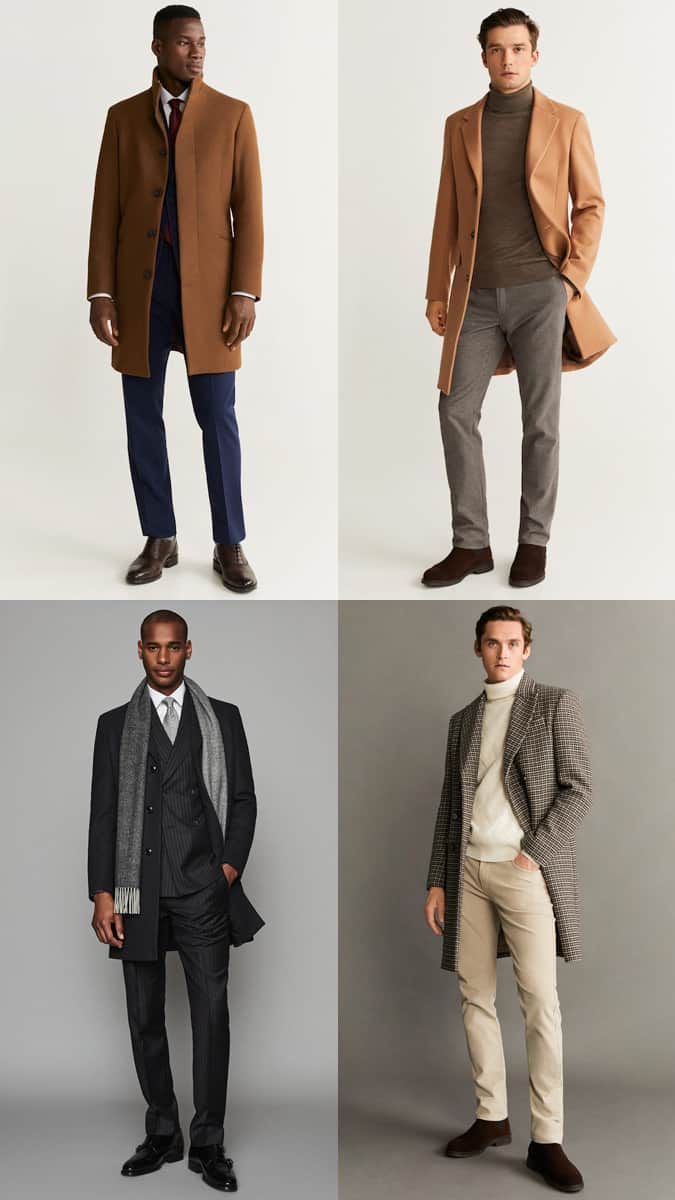
Best Overcoat Brands
A Day’s March
The cut, quality, and affordability of the clothes on offer at Swedish menswear brand A Day’s March have made it an under-the-radar favorite among the menswear pack. Its overcoats are no exception, offering contemporary updates of traditional styles with a shoulder-hugging fit and often produced using wool sourced from historic Italian mills.
Reiss
Premium high street brand
Hugo Boss
When it comes to making clothes, Hugo Boss has German engineering down to a tee. Case in point: the brand’s cashmere and wool-blend men’s overcoats, which swap bells and whistles for smooth, suit-like linings and notched lapels swiped straight from the tailoring handbook.
Marks & Spencer
For proof you don’t have to skip a few meals in order to afford a quality overcoat, look no further than Marks & Spencer. The ever-consistent department store turns out classic iterations made from wool spun at the celebrated Balli mill in Northern Italy as well as more trend-led and statement takes.
Asket
Quality and responsible garment maker Asket works towards creating no-compromise clothing that will last a lifetime. Their fierce focus on garment longevity secures their pieces as stables in any man’s minimalist wardrobe. Committing to ‘Lifecycle Responsibility‘
Brunello Cucinelli
Dubbed ‘The King of Cashmere’, Italian designer Brunello Cucinelli has been spinning the soft stuff into luxury clothes since the mid-‘80s. The brand’s overcoats strike a balance between unstructured styles and a those with a more rigid cut, in a smart yet modern colour palette of light greens and deep browns. Basically, outerwear doesn’t get much better than this.
Ted Baker
At Ted Baker, it’s what’s on the inside that counts, so expect jazzy linings aplenty at the British brand. Not that the outside has been forgotten, mind. Its overcoats are made out of expertly woven materials and cut slightly cropped, which makes them more flattering for shorter body types.
Dolce & Gabbana
With an enumerable list of famous wearers, it’s no understatement to say that Dolce & Gabbana is one of the pinnacle makers of the overcoat. The brand is so synonymous with the classic silhouettes and haute streetwear that some other labels follow quickly after D&G releases a new season capsule to get their cut of the newest trends.
NNO7
NN07 (which stands for ‘no nationality’) takes a global approach with its clothing. As a result, overcoats by the Copenhagen-based label sit somewhere between British formality with their smart double-breasted cut and the looser almost unisex fit more popular among its fellow Scandinavian brands. Keep your outfit underneath slim for maximum impact.
Celine
With revered designer Hedi Slimane at the helm, luxury fashion label Celine has been quietly stopping slim-fits from falling to the bottom of the fashion pile. Its overcoats are still cut with some room, but the soft shoulders brought on by a relaxed raglan sleeve mean they work best with a sharper, slimmer fit underneath.
Gucci
Classic runway and streetwear brand
Wax London
Focused on classic cuts and wardrobe staples Wax London still tries to do their best as a company to be responsible to its stakeholders and the environment. By creating a journey with their customers in mind, their pieces add well to many wardrobes. Specifically, the outerwear pieces are created with an unstructured fit that means they pair well alongside casual streetwear pieces. At the pub or headed to a party their shower-proof, harder-to-crease cotton and rattle-free silver snaps will get to there in style.
The Evolution Of The Overcoat
Formerly used as a means of indicating (usually higher) class and social status, the men’s overcoat found itself the subject of some serious re-appropriation in the 1950s, when the Teddy Boys started gleaning style inspiration from the Edwardian Era.
Worn with high-waisted, stovepipe trousers and chunky brogues or creepers, the Teds breathed new life into the silhouette, lending it a little rebelliousness.
In the 1960s, as skinhead culture began to seep out of the more radical sectors of the disenfranchised British working class, the men’s overcoat was once again given an all-new guise.
Spurred on by the Teds’ and mods’ reinterpretation of clothing traditionally associated with the upper classes, many skinheads began to team men’s overcoats with rolled-up jeans, ‘bovver’ boots and sharply-cut check shirts buttoned all the way to the top.
Later, during the early 1970s, the suedeheads – an offshoot of the skinhead subculture – would go on to fully embrace the silhouette, combining it with smarter attire, such as Prince of Wales check suits and brogues.
It was also around this time that knee-length silhouettes really gained traction as the more versatile, practical style, rather than the dramatic full-length versions that originally defined the overcoat.
By the 1980s, the men’s overcoat had made an almighty return to the mainstream, becoming a key piece in the power dressing professional’s wardrobe – often cut boxy, slightly oversized and worn over the relaxed suiting made so popular by Italian designers like Giorgio Armani.
Now, given the #menswear generation’s renewed interest in all things tailoring, the men’s overcoat has returned to the forefront of fashion.
Article shared from www.fashionbeans.com

